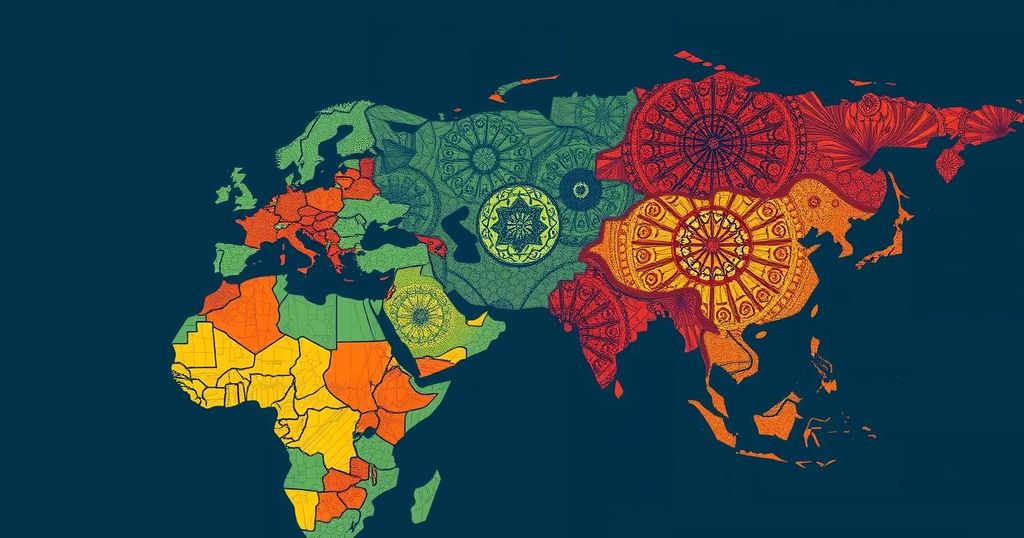Jim O’Neill, the creator of the BRIC acronym, claims that the BRICS group’s attempt to rival the US dollar is realistic only if China and India work together. Recent criticisms highlight the group’s lack of significant progress over the years due to internal divisions and growing geopolitical tensions, particularly between China and India. O’Neill argues that true cooperation is critical for BRICS to become a relevant economic force on the global stage.
Mr. Jim O’Neill, the former Goldman Sachs Chief Economist and originator of the BRIC acronym, has expressed skepticism regarding the BRICS group’s capacity to challenge the supremacy of the US dollar. He contends that this aspiration is unrealistic as long as China and India remain divided and fail to engage meaningfully in trade cooperation. The recent BRICS summit, attended by Russian President Vladimir Putin, serves as a platform for Russia to assert that Western efforts to diplomatically isolate it due to the Ukraine conflict have faltered, highlighting new ties with emerging Asian powers. O’Neill articulated, “The idea that the BRICS can be some genuine global economic club, it’s obviously a bit out there with the fairies… it’s disturbing that they see themselves as some kind of alternative global thing, because it’s obviously not feasible.” He describes the summit as more of a superficial gathering—a forum for prominent emerging economies, with Russia and China leading discussions that underscore their separation from the US-dominated global framework. Since its inception, the BRICS coalition has expanded to include South Africa, Egypt, Ethiopia, Iran, and the United Arab Emirates, now representing 45% of the global population and 35% of the global economy based on purchasing power. However, O’Neill notes that achieving substantial unity and making progress within BRICS may become increasingly complex with further expansion. Moreover, he has criticized the countries within BRICS for their lack of serious initiatives to create alternatives to the dollar, stressing the dependency of any potential BRICS currency on the economic strength of China. He lamented, “If they wanted to be really serious about economic matters, why do they not genuinely pursue less tariff-based trade among themselves?” O’Neill desires to see tangible efforts for cooperation specifically between China and India, whose fractious relations—exacerbated by border disputes—have hindered their collective progress. In conclusion, O’Neill reflects on the unfortunate reality that the BRICS group has made little meaningful progress in the last 15 years. He emphasizes the necessity of cooperation among all major global players, indicating that tackling significant issues, such as the development of healthcare solutions or environmental challenges, cannot be achieved without collaboration between both Western and Eastern powers.
The BRICS group, comprising Brazil, Russia, India, China, and South Africa, was conceptualized to represent the emerging economic powers of their time, highlighted by their collective potential to influence global governance. Initially coined by Jim O’Neill in 2001, the term BRICS aimed to signify the economic growth trajectories of these nations. However, the effectiveness of BRICS has come under scrutiny as geopolitical tensions and national interests often impede cooperation, particularly between its two most powerful members—China and India. The group has expanded to include new members, reflecting a desire to enhance its geopolitical influence, yet skepticism about its cohesion and relevance remains prevalent.
Mr. Jim O’Neill remains critical of the BRICS group’s capacity to function as a serious economic entity capable of challenging the US dollar. His observations underline the significant divisions within the group, particularly between China and India, which hinder effective cooperation. O’Neill expresses doubt about the group’s potential to enact meaningful change, emphasizing the necessity for collaboration among all dominant global economies to address overarching challenges such as health and climate issues. Unless BRICS can establish genuine unity and constructive dialogue, it is unlikely to achieve the level of influence some envision.
Original Source: www.ndtv.com






